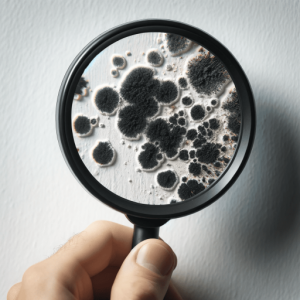Unraveling a Complex Relationship
While this section focuses primarily on the symptoms of mould and bacterial exposure, it’s important to acknowledge the emerging dialogue surrounding the potential link between mould, bacteria, anxiety, and depression. It’s crucial to note that no definitive evidence currently establishes mould and bacteria exposure as a direct cause of these mental health conditions. However, some studies suggest anassociation, warranting further exploration.
Here’s a breakdown of what we currently know:
- Limited Research: Large-scale studies investigating a clear link between general mould exposure and increased risk of anxiety or depression are currently lacking.
- Suggestive Findings: Some research suggests a potential association between mould and anxiety and depression, particularly in individuals with pre-existing vulnerabilities or prolonged exposure to heavily contaminated environments. However, these findings are preliminary and require further investigation.
- Proposed Mechanisms: Theories attempting to explain the potential connection include:
- Inflammation: Similar to Alzheimer’s, chronic inflammation triggered by mould exposure might impact brain function and contribute to the development of mood disorders.
- Mycotoxins: As mentioned previously, certain moulds produce mycotoxins, which might have neurotoxic effects, potentially affecting mood and cognitive function.
- Psychological Factors: Mould exposure can be stressful, and the presence of visible mould growth can contribute to feelings of anxiety and helplessness, potentially worsening existing mental health conditions.
It’s important to emphasize that mould exposure is not the sole cause of anxiety or depression. These complex mental health conditions often arise from a combination of genetic, environmental, and psychological factors.
Here are some key takeaways:
- Maintaining good mental health through practices like mindfulness, stress management, and seeking professional support when needed is crucial for overall well-being.
- Addressing mould growth promptly through professional remediation is essential to prevent potential health hazards, including potential mental health concerns.
- Consulting a healthcare professional is vital if you experience any concerning symptoms, including persistent anxiety, depression, or concerns about potential mould exposure.
- Feeling irritable, anxious, or depressed for no reason? It could be more than just a bad day. Exposure to mould and bacteria in your home or workplace can trigger inflammatory responses in the body, impacting your central nervous system and leading to mood swings. This category explores the connection between indoor air quality and emotional well-being, helping you recognize the signs and take action towards a healthier environment and a more balanced mood.


